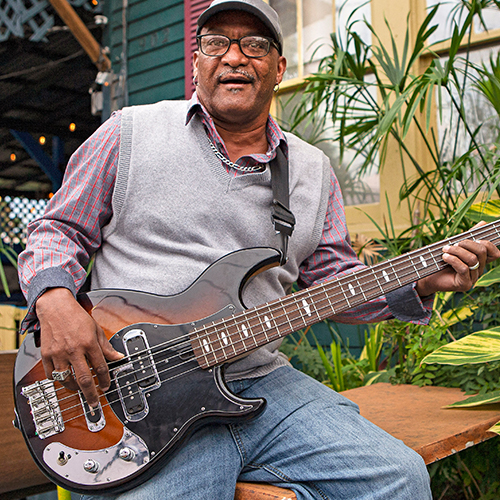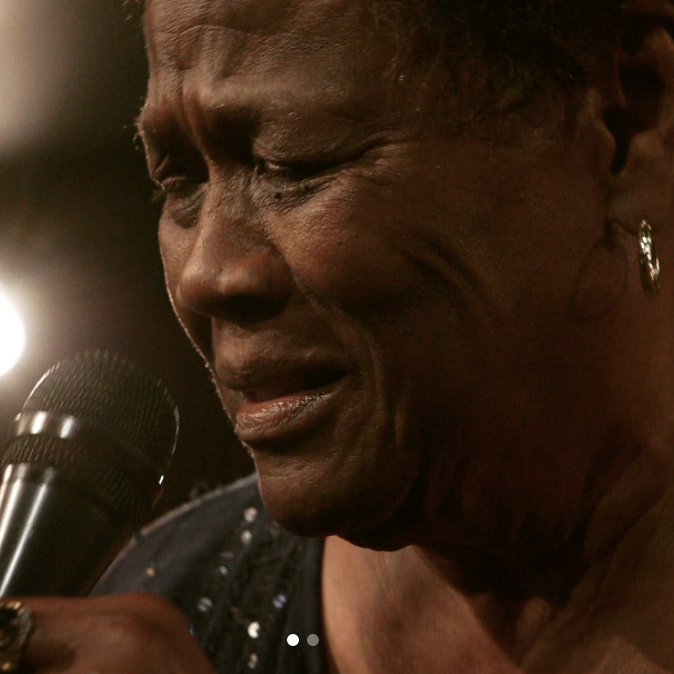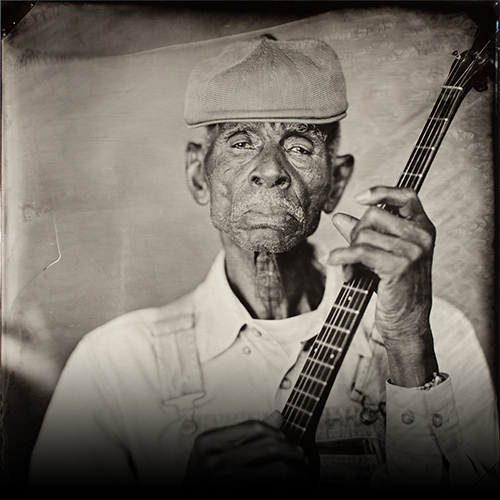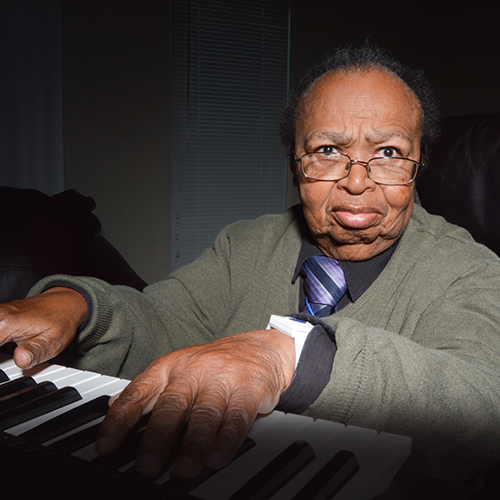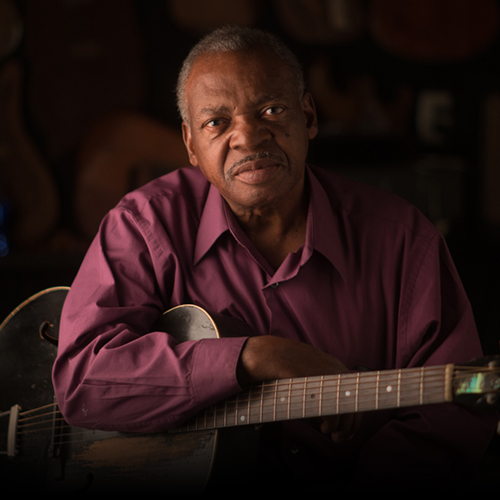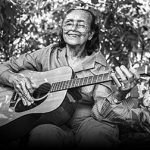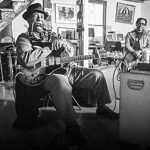Biography
You couldn’t meet a more welcoming; friendly and communicative man that Eugene. He certainly enjoyed company and sharing his musical skills and view of the world with anybody interested in listening – it was nothing unusual for Eugene to sit down and talk non-stop for five hours about his long, hard life. Yet it is sometimes impossible to imagine all the things he (and most other people in the Delta) had to go through in order to survive. – Axel Kustner
How We Helped:
Since joining the ranks of Music Maker’s artists in 1995, Eugene Powell has received grants for sustenance and emergency relief, and has been featured in the book Music Makers: Portraits and Songs from the Roots of America (2004).
“Play it a Long Time, ‘Cause a Short Willie’s Gonna Make Me Mad”
December 23, 1998, should have been the happy occasion of celebrating Eugene Powell’s 90th birthday. Instead it found me with the sad task of writing his obituary. Of all the Mississippi Delta musicians of his generation, Eugene was the last still-active performer who had recorded pre-war and who had always remained in the state (except for a brief stay in Decatur, IL, in the early 1950’s.
Eugene Powell was born in Utica, MS, a small town about 25 miles southwest of the state capital, Jackson, to Rosie Powell, a black domestic worker. His father was the white Homer Powell. This gave Eugene an ambivalent status among both races. While still a young boy Eugene lost his right eye to a hostile youngster’s bow and arrow – done on purpose and not an accident while playing as usually reported. He only met his father once – he gave the boy a gun.
It was at age eight, in the Delta at Lombardy, MS, that his mother ordered a guitar from Sears and Roebuck for him – three days later he was playing it and would start entertaining the guards at nearby Parchman prison farm together with his brother Ben (who was murdered in Hallandale, MS. in the late 1920’s on mandolin. Eugene soon began to play at picnics and suppers. During the late 1920’s Eugene worked as an itinerant musician in Mississippi, the Arkansas Delta, Tennessee and Louisiana. Playing for both blacks and whites he delivered whatever his audience requested blues, popular music and ragtime pieces.
It was during this time that he met guitarist Richard “Hacksaw” Harney (1902-1978) who influenced Eugene’s playing heavily (as did the records of Blind Lemon Jefferson, Blind Blake and Lonnie Johnson). Other musicians he knew well during those years were members of the musical Chahron family (Bo, better known as Bo Carter, Sam and Lonnie – all performing as “The Mississippi Sharks”), Walter Vinson, guitarists Mott Willis, Robert Nighthawk and Houston Stackhouse, as well as many other, more obscure musicians from the Greenville/Hollandale area.
It was upon the recommendation of Bo Carter that Eugene waxed his first recordings for the Bluebird label on October 15, 1936, at the St. Charles hotel in New Orleans. At this session, co-produced by Bo Carter, Eugene made six recordings as Sonny Boy Nelson; backing him on second guitar was Brother Willie Harris. They both also played behind Eugene’s girlfriend Mississippi Matilda (1914-1973) singing four songs, and harmonica player Robert Hill on 10 tracks, a variety of blues, pop and popular. Very likely Eugene can also be heard on the 12 recordings of the Chatman [sic] Brothers (Lonnie and Sam) made the same day. 60 years later Eugene could still recall the whole group traveling from the Delta by car to the session winding up in the opposite direction in Pascagoula, MS – a truck driver finally leading them into New Orleans. He also remembered that photos were taken of the musicians and claimed that he earned about $600 for these recordings.
At that time Eugene made his living sharecropping but also operated a roadhouse where he would earn money gambling and selling bootleg liquor and homebrew.
By the early 1950’s Eugene and Matilda separated (she moved to Chicago with their eight children) and the amplified blues that emerged gave artists like Eugene fewer and fewer opportunities to perform. Upon the urging of his old friend Sam Chatmon, Eugene got back into music around 1970. But unlike many of the other rediscovered bluesmen, which were now performing mostly for white audiences, Eugene never really participated in that ‘blues revival’. Rather he stayed home in Greenville; feeling obliged to take care of his disabled girlfriend Carrie. Just because somebody wore out, you don’t throw them away he told visiting British photographer and writer Val Wilmer in 1972. That year, however, he made a rare appearance at the Smithsonian Festival of American Folklife in Washington, DC, where he was reunited with his old playing partners ‘Hacksaw’ Harney, Sam Chatmon and Houston Stackhouse. After Carrie’s death, more appearances followed, usually at the annual Delta Blues Festival in Greenville and the Sunflower Blues Festival in Clarksdale. Other appearances were made in 1992 at the Chicago Blues Festival and on a short tour in Massachusetts, as well as the 1993 and 1994 Crossroads Blues Festival in Greenwood, MS, and the 1994 King Biscuit Blues Festival in Helena, Arkansas.
In 1994 he actually married for the first time – Lois Eva Smith of Hollandale, MS, a woman about half his age. You couldn’t meet a more welcoming; friendly and communicative man that Eugene. He certainly enjoyed company and sharing his musical skills and view of the world with anybody interested in listening – it was nothing unusual for Eugene to sit down and talk non-stop for five hours about his long, hard life. Yet it is sometimes impossible to imagine all the things he (and most other people in the Delta) had to go through in order to survive.
– Axel Kustner
